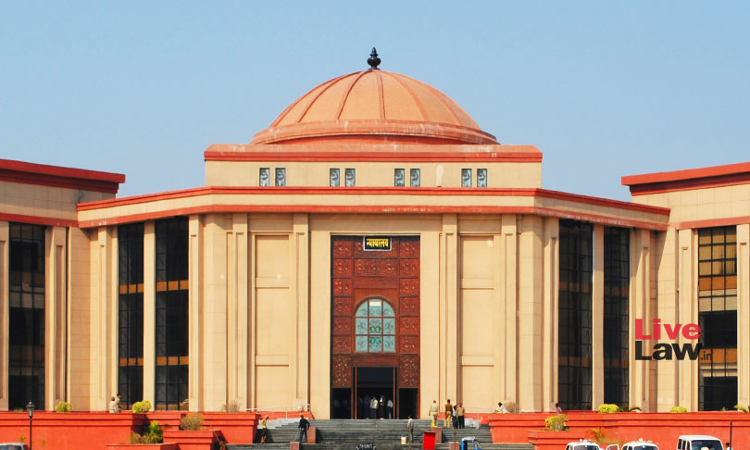- Home
- /
- High Courts
- /
- Chhattisgarh High Court
- /
- Pension Hard-Earned 'Property'...
Pension Hard-Earned 'Property' Protected Under Article 300A, Can't Be Taken Away Without Following Due Process: Chhattisgarh High Court
Saahas Arora
14 April 2025 10:25 AM IST
The Chhattisgarh High Court has held that pension is a hard earned benefit accrued to an employee and is in the nature of 'property', which enjoys the protection of Article 300-A of the Constitution of India and the same cannot be taken away without due process of law.A Single Judge Bench of Justice Bibhu Datta Guru, further observed, “A person cannot be deprived of this pension without...
The Chhattisgarh High Court has held that pension is a hard earned benefit accrued to an employee and is in the nature of 'property', which enjoys the protection of Article 300-A of the Constitution of India and the same cannot be taken away without due process of law.
A Single Judge Bench of Justice Bibhu Datta Guru, further observed,
“A person cannot be deprived of this pension without the authority of law, which is the constitutional mandate enshrined in Article 300-A of the Constitution. It follows that attempt of the appellant State Government to take away a part of pension or gratuity or even leave encashment without any statutory provision and under the umbrage of administrative instruction cannot be countenanced.”
Facts
The Court was dealing with a writ petition challenging an order dated 15/02/2021 (impugned order), whereby, permission was granted to recover an amount of Rs.9.23 lakhs from the pension of the the original petitioner, one Rajkumar Gonekar (since deceased), under the authority of Rule 9 of the Chhattisgarh Civil Services (Pension) Rules, 1976 (“the 1976 Rules”). During the pendency of the petition, the original petitioner died on 20/06/2024 and hence, his legal heirs were impleaded.
The original petitioner was appointed as Assistant Director in 1990 and thereafter, was promoted to the post of Deputy Director in 2000. However, he was later demoted to the post of Assistant Director. Pursuant to orders of the Court, the petitioner rendered his services as Deputy Director and retired from service on attaining the age of superannuation in 2018.
While in service, a notice was issued to him, alleging misappropriation. The petitioner submitted his reply and stated that he had not committed any misappropriation and had acted in accordance with the law. Regardless, after the retirement of the petitioner, a show cause notice was issued to him asking him to submit his response. While the petitioner submitted his response, the same was not appreciated and the impugned order was passed, granting permission to recover an amount of Rs.9.23 lakhs from the pension of the petitioner.
The petitioner argued that the impugned order was passed in an illegal and arbitrary manner without following due process of law. Contrary to this, the respondents argued that much before the retirement of the petitioner, notices were issued in 2016-27 regarding misappropriation of public exchequer and only after receipt of the reply of the petitioner was action taken. It was further submitted that the matter was forwarded to the state government, which, by exercising power under Rule 9 of the 1976 Rules, granted permission for recovery of the amount from the pension of the petitioner.
The question thus tabled before the Court was whether an opportunity of hearing was required to be afforded to the petitioner while withholding the pension or any part of it.
Findings
Rule 9 of the 1976 Rules enacts that the Governor has the power to withhold or withdraw a pension, in totality or partially, or recover financial loss caused to the government if the pensioner is found guilty of serious misconduct or negligence in service. Additionally, it provides that departmental proceedings, if instituted while the Government servant was in service, shall, after his final retirement, be deemed to be proceedings and shall be continued and concluded by the authority by which they were originally commenced.
The Court referred to the case of State of Punjab Vs. K.R. Erry and Sobhag Rai Mehta & other connected matters, where the Supreme Court emphasised on the need of adherence to the principles of natural justice in cases of an administrative order involving civil consequences; and the case of Rameshwar Yadav Vs. Union of India & another, where the Supreme Court held that the competent authority should apply its mind in cases of suspension of pension in whole or in part, and held,
“Bare perusal of Rule 9 of the Rules of 1976, it is manifest that the recovery from pension of the whole or part of any pecuniary loss caused to the Government can be ordered if, in any departmental or judicial proceeding the employee concerned found guilty. However, in the case at hand, except the show cause notice and the reply of the petitioner, nothing is there to establish the fact that the petitioner found guilty in any judicial or disciplinary proceeding. Thus, the recovery order by exercising power under Rule 9 is not at all sustainable in the eyes of law.”
Moreover, the Court held that pension and gratuity are not bounties and are earned by dint of long, continuous, faithful and unblemished service. They are in the nature of 'property' protected by Article 300-A and cannot be taken away without due process of law.
Quashing the impugned order and directing any deducted amount from the pension of the petitioner to be refunded, the Court allowed the writ petition.
Case Details:
Case Number: WPS No. 4181 of 2021
Case Title: Rajkumar Gonekar (dead) through LRs v. State Of Chhattisgarh
Date: 02/04/2025



